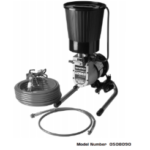A drug allergy is an abnormal reaction of your immune system to a medication, and reactions occur when your body mistakenly identifies a drug as dangerous. Your immune system then creates antibodies to fight this perceived threat. Here is some information on how to navigate the world of drug allergies:
Recognizing Symptoms of Drug Allergies
Symptoms of a drug allergy often appear within an hour of taking a new medication, but they might also develop hours or days later. Common signs include skin rashes, hives, or itching. Some people experience fever or swelling.
A severe, life-threatening allergic reaction is called anaphylaxis. Its symptoms include difficulty breathing, lightheadedness, a rapid pulse, and a drop in blood pressure. Anaphylaxis requires immediate medical attention as it affects multiple body systems and may lead to shock.
Differentiating Between Allergies and Side Effects
It is helpful to distinguish between a drug allergy and a drug side effect. A side effect is a known possible reaction listed on a drug’s packaging, such as an upset stomach after taking certain pain relievers. An allergy involves an immune system response. Side effects are often predictable and dose-dependent, while allergic reactions are not. Knowing the difference helps you communicate more clearly with your healthcare provider about what you are experiencing.
Knowing What Medications Cause Allergies
While any medication has the potential to cause an allergic reaction, some are more commonly associated with them. Common allergy-triggering medications include:
- Antibiotics: Penicillin and sulfa drugs can cause allergic reactions.
- Chemotherapy drugs: These powerful medications are used to treat cancer and can sometimes trigger allergic responses.
- Nonsteroidal anti-inflammatory drugs: NSAIDs like aspirin, ibuprofen, and naproxen may also trigger allergies.
- Anesthetics: Local anesthetics, such as those used during dental procedures, and general anesthetics used during surgery, can cause allergic reactions.
Treating Drug Allergies
The first step in managing a drug allergy is to stop taking the medication causing the reaction, following a doctor’s guidance. For mild symptoms, such as a rash, an antihistamine may be sufficient to relieve discomfort. In cases with more swelling or inflammation, a doctor might prescribe a course of oral or injectable corticosteroids.
The standard treatment for anaphylaxis is an injection of epinephrine. People with known severe drug allergies may carry an epinephrine auto-injector. Prompt medical intervention is necessary for any severe reaction. Desensitization, a process where a specialist administers the drug in increasing doses under supervision, may be an option if you must take a specific medication.
For individuals managing drug allergies, maintaining updated medical records is beneficial. Always inform healthcare providers of any known allergies to prevent the administration of problematic medications. Wearing a medical alert bracelet or carrying a card that details your allergies can also be lifesaving in emergencies.
Work With Immunology Specialists
Understanding and managing a drug allergy requires clear information and professional guidance. An immunology specialist can diagnose your condition accurately through skin tests or blood tests, and they will help develop a management plan tailored to your needs. This plan includes identifying which medications to avoid and outlining the steps to take if a reaction occurs. Contact an immunology specialist today to schedule allergy testing.









